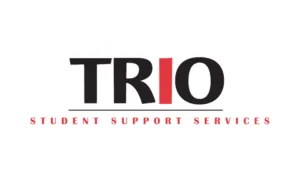Though Seattle Colleges has experienced financial challenges in the past, including Central’s consecutive years of monetary cuts, COVID-19 has created unprecedented budgetary issues. In order to face what may be devastating results district-wide, Seattle Colleges Chancellor Shouan Pan organized the Strategic Budget Reduction and Future Planning Taskforce, to guide decisions on district-wide financial strategy.
In late June, the Washington State Board for Community and Technical Colleges’ (SBCTC) board members voted on the college system’s 2020-2021 state operating budget, approved by state legislature before the COVID-19 economic decline. Distributed by an allocation model, funding will then be dispersed by the board’s approval.
Legislature has yet to reconvene to approve a budget that accommodates COVID-19 losses. Despite this, the state board is proceeding, in order to prepare community and technical colleges across the state for the nearing 2020-2021 school year.
Seattle Colleges’ Chancellor’s Executive Cabinet has announced decisions to begin budget cut strategies effective immediately. On July 7, the Chancellor’s office declared the implementation of mandatory furloughs for all employees in the month of July for one day, per week. This excludes faculty and staff working in grant-funded programs.
Classified and exempt staff not represented by the district’s union, American Federation of Teachers (AFT), will be able to apply for unemployment benefits through the state’s SharedWork Program, which allows Washington State employers to avoid layoffs by providing workers partial unemployment benefits when hours are reduced. The district currently awaits approval for AFT represented exempt employees.
The office also has immediately initiated reduced hours for the month of July, and communicated expected temporary and permanent lay-offs beginning in August for employees working in specific self-sustaining programs.
This announcement comes after the Strategic Budget Reduction and Future Planning Task Force’s first report to Chancellor Pan, published on Jul 2, analyzing over 30 budget reduction strategies.
Considering recommendations compiled by the task force, all colleges and the district office will be expected to begin the budget reduction processes in order to submit a balanced budget for the 2020-2021 fiscal year to the Board of Trustees’ for adoption in October.
The budget reduction strategies were analyzed based on savings potential and impact on students, contracts, and racial equity. The strategies, sorted from highest to lowest priority for executive leadership to consider implementing, omit reasoning for impact on savings, students, contracts, and equity.
Only including minimal notes or questions, the examination of each strategy is absent throughout the report, which was specified to be the lead for colleges and the district office to “undertake their own budget reduction processes based on their specific contexts.”
Included among the top 50% highest prioritized strategies in the report were voluntary furloughs, freezing vacancies, and reducing/halting spending on professional development.
On the contrary, among the 50% lowest prioritized strategies for recommended implementation were position reductions (layoffs), closing/reducing high-cost programs, and reducing student activities.
Though requiring furloughs rates 14th out of the 33 possible budget reduction actions, it is one of the three new strategies initiated by the Chancellor’s Executive Office on Tuesday. Requiring furloughs is noted by the report to have medium potential savings, but high impact on students, contracts, and growth of inequity.
As Seattle Colleges battles drastic, state-wide budget cuts that threaten higher education, the district office and individual colleges proceed with budget reduction for the 2020-2021 fiscal year.
With unforeseen circumstances in the future as the U.S sees a surge in COVID-19 cases that could shut down the economy once more, Seattle Colleges faces uncertainty.

Alexa is an avid journalist seeking an A.A. with an emphasis on Global Studies at Seattle Central College. She's interested in pursuing investigative journalism to report on social struggles like immigration, civil rights, and access to education in South and North America. She is currently working to cover budget cut reforms at Central and civil rights movements in Seattle. Alexa is also a Youth Council Member at OneAmerica, advocating for greater access to quality education for immigrants and refugees in WA. She is a first-generation American who has travelled to 13 countries to explore world cultures and politics.







[…] Seattle Colleges continues to implement budget cut strategies which began in 2020 July, staff union members organized to stand against furloughs and lay-offs at a Counter-Convocation […]